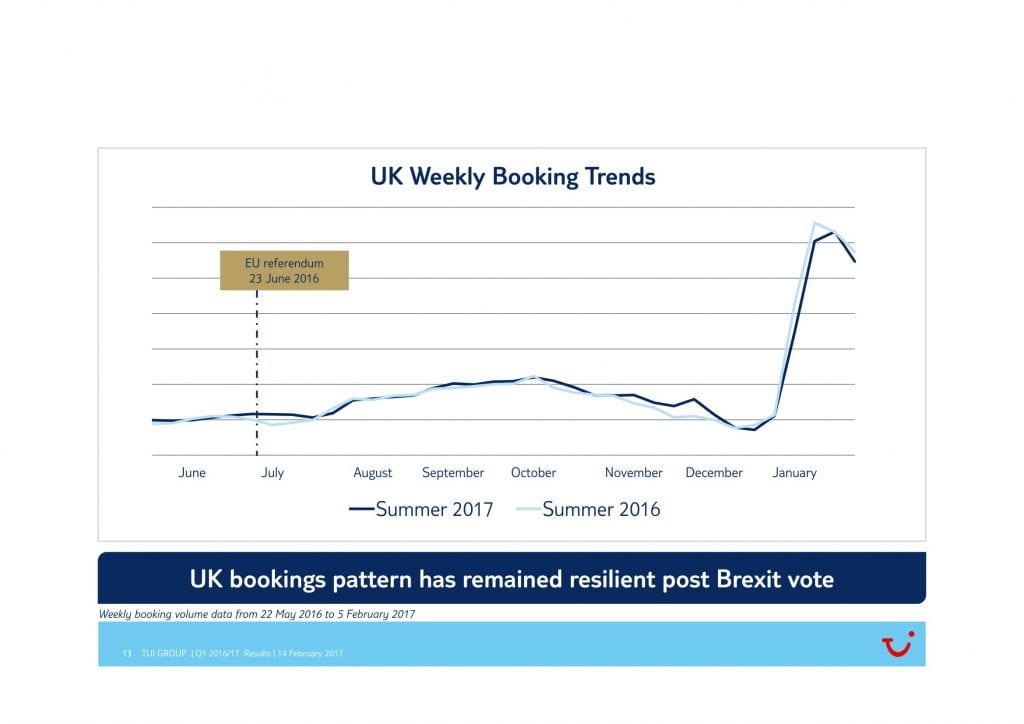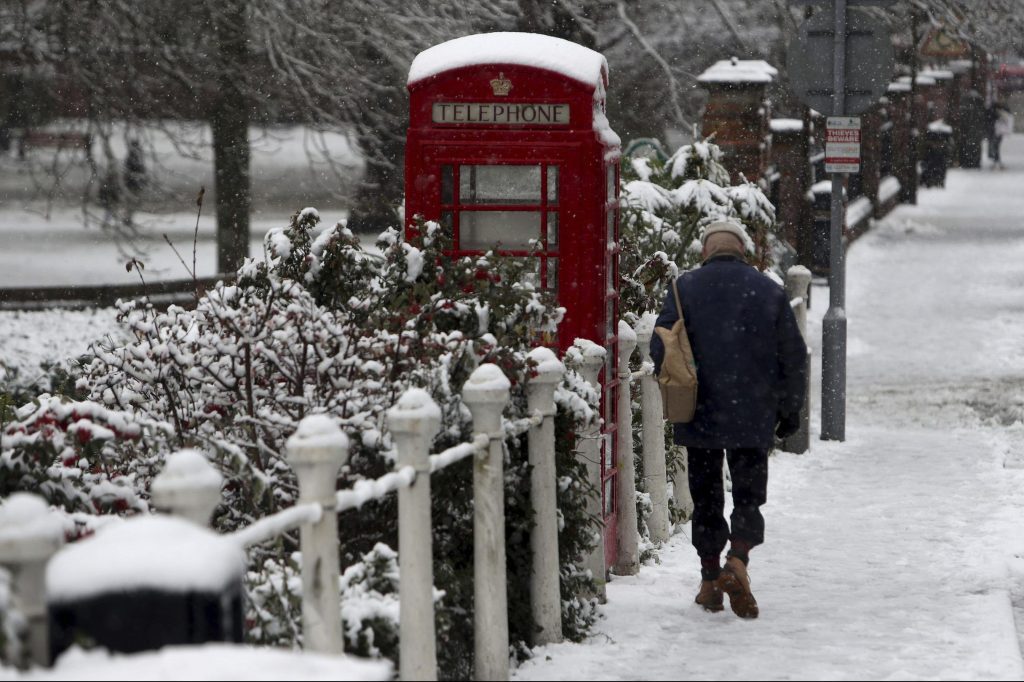Skift Take
Common wisdom among tour operators has always been that to have a good year, you needed to have a good January, and it is still no different. While the reasons for booking holidays early might hark back to the pre-Internet era, the consumer pattern hasn't changed very much.
Over the last couple of years, travel marketers have arbitrarily designated a Saturday in January, usually the first, as “Sunshine Saturday.”
Of course it’s totally phony, and is used simply to sell more holidays, but it does contain a kernel of truth: In the UK, Germany and much of northern Europe, travelers still book a huge number of trips at the start of the year.
While it may appear to be something of a throwback to the pre-Internet days when booking well in advance of departure was the standard and last-minute deals were harder to access, it is still a fundamental part of the industry. A TUI Group slide below from February 2017 shows just how crucial these early sales are.

This year, TUI Group said that on January 6, 30,000 UK customers booked a holiday, and the company claimed a record number of visits to its stores and website.
Interestingly, there are slight differences across Europe over the most popular booking days. In Germany, TUI is expecting 20,000 people to book their holidays on Saturday January 13, turning it into its busiest day. In two other source markets, the Netherlands and Austria, the trend is for bookings on the last Saturday in January.
Why January?
Tour operators have historically sold a significant portion of their stock in January for a couple of reasons.
First, because people tend to go on their main holiday in June, July and August – the peak European summer months – selling packages in January and February leads to better yields. Sell lots of vacations from March onwards and you run the risk of having them lumped in with what, in Europe, is known as the “lates” market, where operators across the sector often slash prices.
“The more you can sell up-front the more you’re going to get out of it. Even if you’re discounting, you’re still going to recover more than you would selling it as a ‘lates’ product,” one industry executive, who has worked at a host of tour operators, said.
In a way it also harks back to the days of charter flights where tour operators would have to commit to seats or whole planes early-on. Nowadays the trend is to book on an ad hoc basis later in the year when you know where and when people are going away, thus reducing the exposure if customer demand to a particular destination doesn’t materialize.
For Thomas Cook and TUI Group, both of which have their own in-house airline, this planning is still very important.
The second reason is more to do with human nature. After the Christmas and New Year’s festivities there is an understandable lull. January and February in northern Europe can be pretty bleak, so what better way to cheer yourself up than by booking a vacation?
“I think there is something about the natural cycle of life where people are most inclined to think about their summer holidays in these dark, dull January, February days when there’s not much else to keep you excited about life. Psychologically, it’s the right time to target and over time that’s been reinforced by the messaging that’s come out of the industry,” said Derek Jones, UK CEO at pan-European travel company Der Touristik Group.
The final point to bear in mind is the nature of the business. Persuading people to book early gives companies certainty about the year ahead and avoids the risks associated with the lates market.
As has been the case in recent years, terrorism and other geopolitical factors have had a massive impact on the popularity of certain destinations. If you don’t sell enough holidays early on it might be harder to sell a certain resort and equally difficult to get hold of accommodation at more popular one. Just look at what has happened with Spain and Turkey.
“The tour operators go after it at this time, The amount of advertising right now, the pushing of sales prices and special offers and things like that is very high at this time of year,” said Richard Clarke, senior analyst for European hotels and leisure at investment firm Bernstein.
“They’re pushing for it as well and they will want to get some cash in the door. From the tour operators’ point of view, they’re paying right now to secure their content and to avoid the biggest possible working capital swings, they would like to get – even if it’s just deposits – some cash in right now.”
A Good Indicator
The reason operators sell so many holidays in January and February is a bit chicken-and-egg. Are the consumers driving the demand, or (more likely) is it the tour operators desperately trying to push higher-margin sales through blanket advertising?
In a way it doesn’t really matter. Irrespective of motive, millions of dollars is spent at the start of every year, trying to persuade people to part with their cash early.
Google Searches Versus Passenger Numbers
And 2018 is no different, but what is interesting is that there is a correlation between Google searches and passenger numbers.
Research from Bernstein suggests that the two are related and the bad news is that in the UK the likes of Thomas Cook and TUI Group might be in for a tough 2018.
According to Bernstein, searches on Google for the term “holiday” are a good indicator of eventual passenger numbers. This year traffic for the first weekend in January was down 2 percent.
“If these passengers also go for shorter holidays and to cheaper destinations, then it could be a tough year for the UK market,” the report said.
There is better news coming out of Germany, although this is tempered by the fact that online penetration remains relatively low in that market. Here, searches for Urlaub (vacation) increased 9 percent for the week ending January 6. And as we already mentioned, Germany’s biggest booking day is yet to come.
We’ll likely have to wait until February, when both Thomas Cook and TUI Group update the market, to find out whether “Sunshine Saturday” lived up to the hype.
The Daily Newsletter
Our daily coverage of the global travel industry. Written by editors and analysts from across Skift’s brands.
Have a confidential tip for Skift? Get in touch
Tags: europe, thomas cook, tui group, vacations
Photo credit: A man walks past a snow-covered phone box in Marlow, England. Wintry weather prompts people to start thinking about sunnier climes. Steve Parsons / The Press Association via Associated Press
